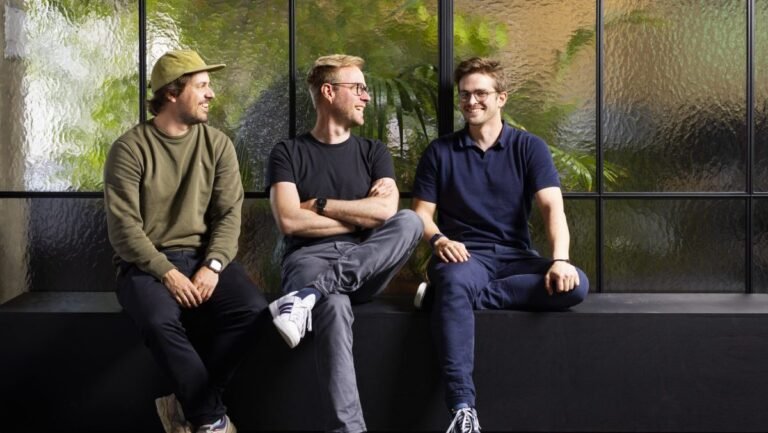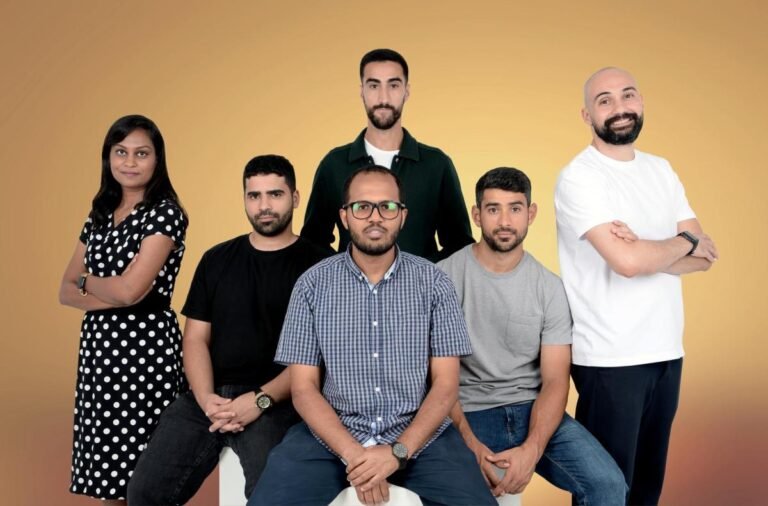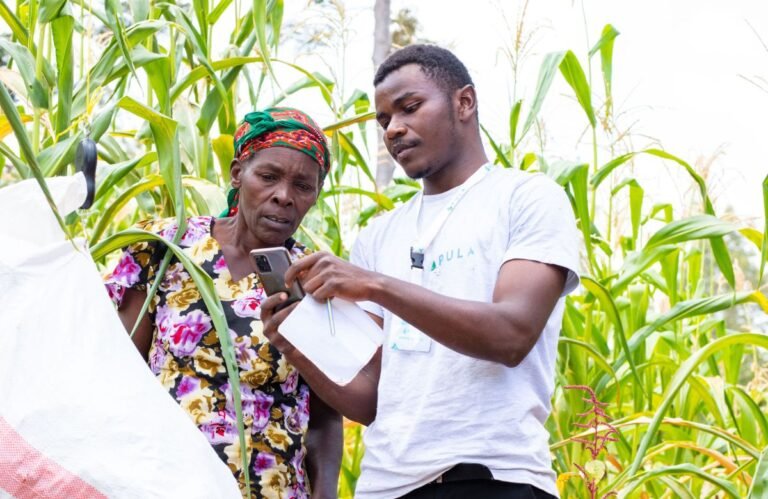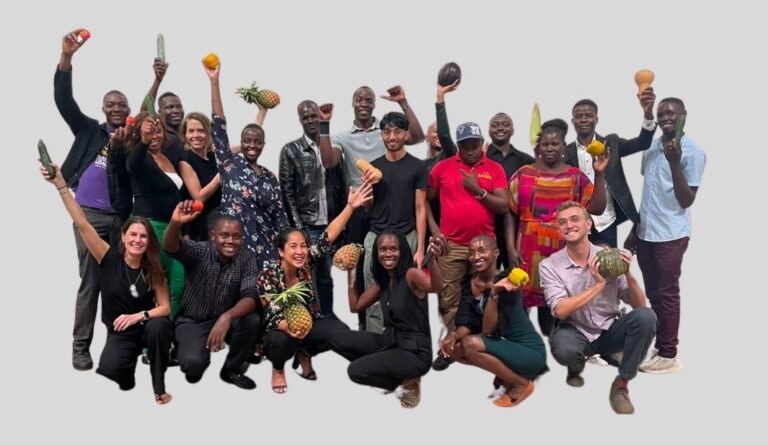
Gorilla, a Belgian company that serves the energy sector with real-time data and analytics for pricing and forecasting, has raised €23 million ($25 million) in a Series B round led by U.S. venture capital firm Headline.
Founded in 2018, Antwerp-based Gorilla works with energy providers across Europe, the U.S. and Australia, including British Gas’ parent Centrica, Shell Energy, and Atlanta, Georgia-based Gas South.
Throw into the mix geopolitical factors such as the Russia-Ukraine conflict, ever-evolving regulations, increasingly distributed energy sources across fossil and renewables, and the increasing use of connected technology, and we now have fertile ground for data-focused energy startups to flourish.
“No one knows what the energy sector will look like 10 years from now,” Gorilla’s co-founder and CEO, Ruben Van den Bossche, said in a statement.
Other participants in the round include the startup’s existing investors Beringea and Belgian private equity firm, PMV.

For them, the difficulty hasn’t been opening local USD accounts; it’s been cost-effectively facilitating payments from international employers and online platforms.
“Using local products meant many remote workers had large chunks of their earnings eaten away with excessive fees.
The USD products couldn’t be local,” said Oudjidane, who is also the founding partner of emerging markets fintech fund Byld Ventures.
“The product would need to move to offering U.S.-based USD accounts,” accounts that, critically, would facilitate ACH payments to enable those freelance payments and came with the security that you get with U.S. banking, such as FDIC assurance.
“Freelancers and remote workers in these markets will undoubtedly be a critical source of foreign income to help rebuild,” Oudjidane said.

Serve Robotics, the Uber and Nvidia-backed sidewalk robot delivery company, debuted publicly on the New York stock exchange Thursday, making it the latest startup to choose going public via a reverse merger as an alternative path to capital needed to fund growth.
While Serve’s debut in the public markets comes from a reverse merger and not a SPAC, the two alternate paths to IPO are not too dissimilar.
However, Serve Robotics said it’s expecting enormous growth fueled by money generated by going public.
“I never thought that I would start a robotics company and then be in the ads business,” said a tired, but excited, Kashani in a phone interview minutes before the bell rang.
Upon the closing of the merger, Uber held a 16.6% stake and Nvidia an 14.3% stake in Serve, according to regulatory filings.

Pula, an insurtech based in Kenya, has since 2015 been keen on enhancing the access to agricultural insurance by small-holder farmers across emerging markets, shielding them against losses from pests, diseases and/or extreme weather events like floods and droughts.
“Partnering with this group of like-minded investors to boost the growth of Pula globally is a very exciting milestone in driving our triple 100 vision, through which we intend to bring insurance to 100 million smallholder farmers.
Pula embeds insurance in partners’ productsInstead of selling insurance directly to farmers, Pula has built a distribution channel of over 100 partners, including charitable organizations, banks, governments and agricultural input companies, to serve even the hard-to-reach farmers, by embedding insurance, for instance, in farm input costs or credit.
Each product Pula offers is customized to suit the demands of its clients, and the needs of the beneficiary farmers.
Pula, through insurance partners, has been offering rural families in Nigeria comprehensive coverage against banditry, disease and death of animals.

WhatsApp is testing Meta AI, its large language model-powered chatbot, with users in India and some other markets, signalling its intentions to tap the massive user base to scale its AI offerings.
The company recently began testing the AI chatbot, until now available in the U.S., with some users in India, many of them said.
India, home to more than 500 million WhatsApp users, is the instant messaging service’s largest market.
Meta unveiled Meta AI, its general-purpose assistant, in late September.
The AI chatbot is designed to answer user queries directly within chats as well as offer them the ability to generate photorealistic images from text prompts.

The U.K.’s competition watchdog has sounded a warning over Big Tech’s entrenching grip on the advanced AI market, with CEO Sarah Cardell expressing “real concerns” over how the sector is developing.
She said it’s important that competition enforcers don’t repeat the same mistakes with this next generation of digital development.
But for now the CMA has not gone that far, despite clear and growing concerns about cozy GAMMA GenAI ties.
“It may be that some arrangements falling outside the merger rules are problematic, even if not ultimately remediable through merger control.
(The short version of what it wants to see is: accountablity; access; diversity; choice; flexibility; fair dealing; and transparency.)

Rubrik, a data cybersecurity company that raised more than a half-billion dollars while private, filed to go public after the bell on Monday.
As a private-market company, Rubrik last raised a lettered round in 2019 when it closed $261 million at a $3.6 billion post-money valuation, according to Crunchbase data.
However, subscription revenue grew 40% over the same period, rising from $385.3 million to $537.9 million.
The growth in its subscription revenue, and not its legacy revenues, is the engine that could propel Rubrik to a successful IPO.
A Silicon Valley storyRubrik’s potential IPO could prove a coup for Lightspeed Venture Partners, a well-known Silicon Valley venture capital shop.

Thrive Market is well, thriving.
The billion-dollar e-commerce company splashed onto the scene in 2016 with its idea of online grocery delivery.
Nick Green, one of the company’s co-founders, stopped by Found to chat about his company and the market’s evolution since he first launched it.
This argument is what helped Thrive Market become the first online grocery retailer that the USDA approved to accept food stamps.
Thrive Market had to raise money from content creators and influencers until VCs picked up on the craze.

Climate change.
The UK will be even better off, gaining 40 outdoor days by the end of the century.
Illinois will lose more than a month of outdoor days by the 2080s as the summers grow unbearably hot.
Nigeria’s summers will grow even hotter and longer, lopping off nearly two months of outdoor days.
Both Nigeria and India would only lose one month of outdoor days, and more northerly regions retain some of their added outdoor days.

Globally, a third of the food produced is lost or wasted, and in Kenya, that figure stands at between 20% to 40%.
Farm to Feed, an agri-tech based in Kenya, is one of the fast-risers in the space.
Farm to Feed teams then sort, grade and dispatch the products to clients from its warehouse in Kenya’s Capital, Nairobi.
Data collectionOn top of the e-commerce platform, Van Enk said they are building a data platform by collecting granular data including on climate and drivers of food loss, for better farming outcome and to create a more circular food system.
I do think that food loss is such a huge impact opportunity and also a very good commercial opportunity,” she said.













